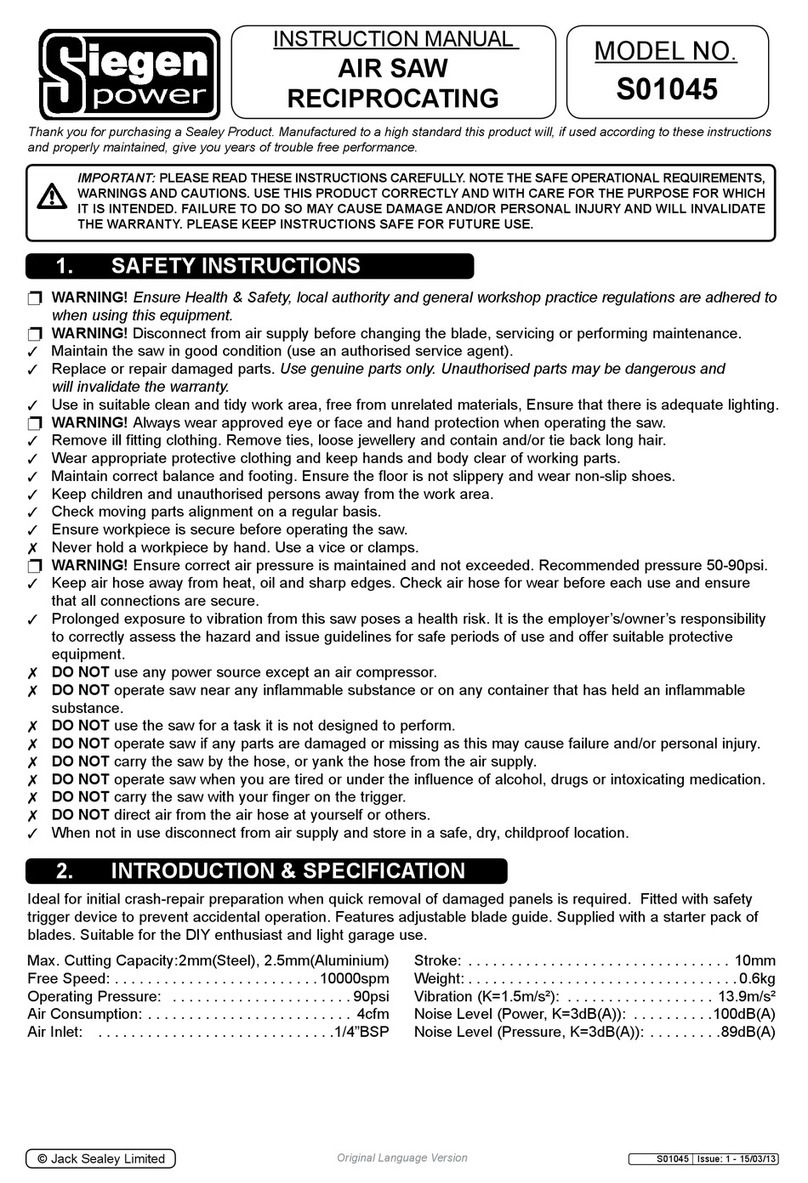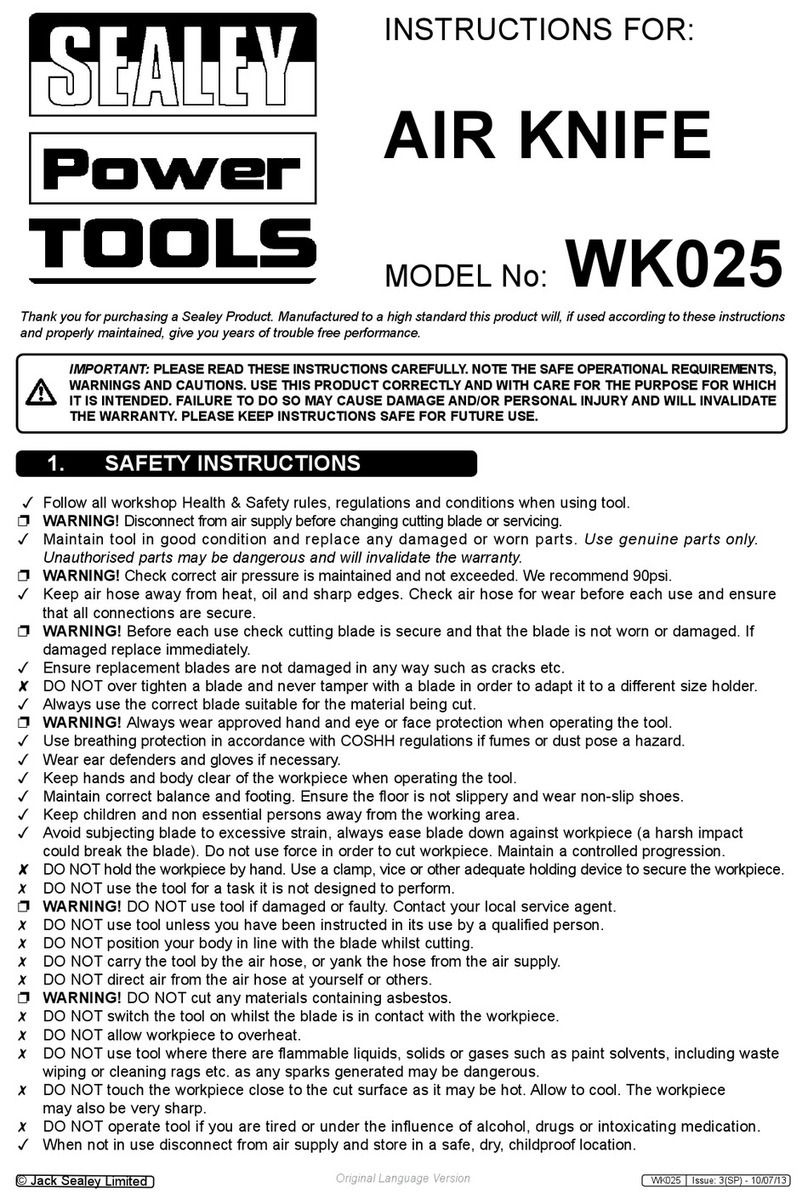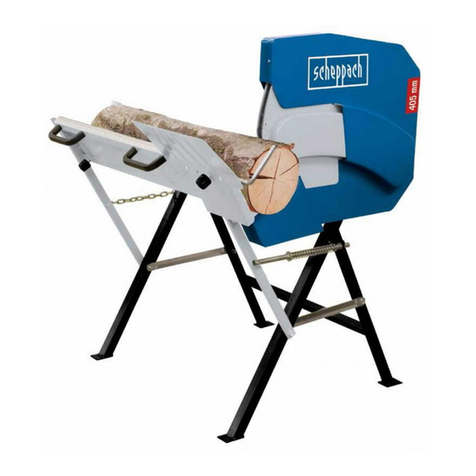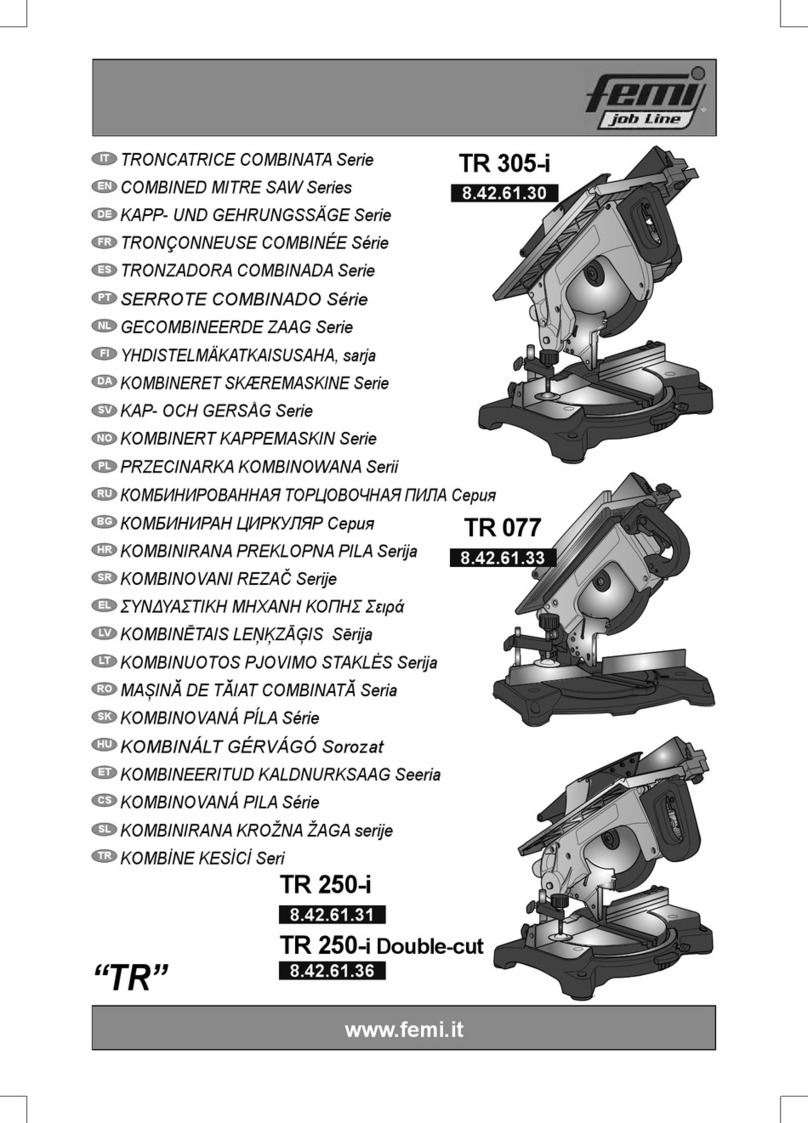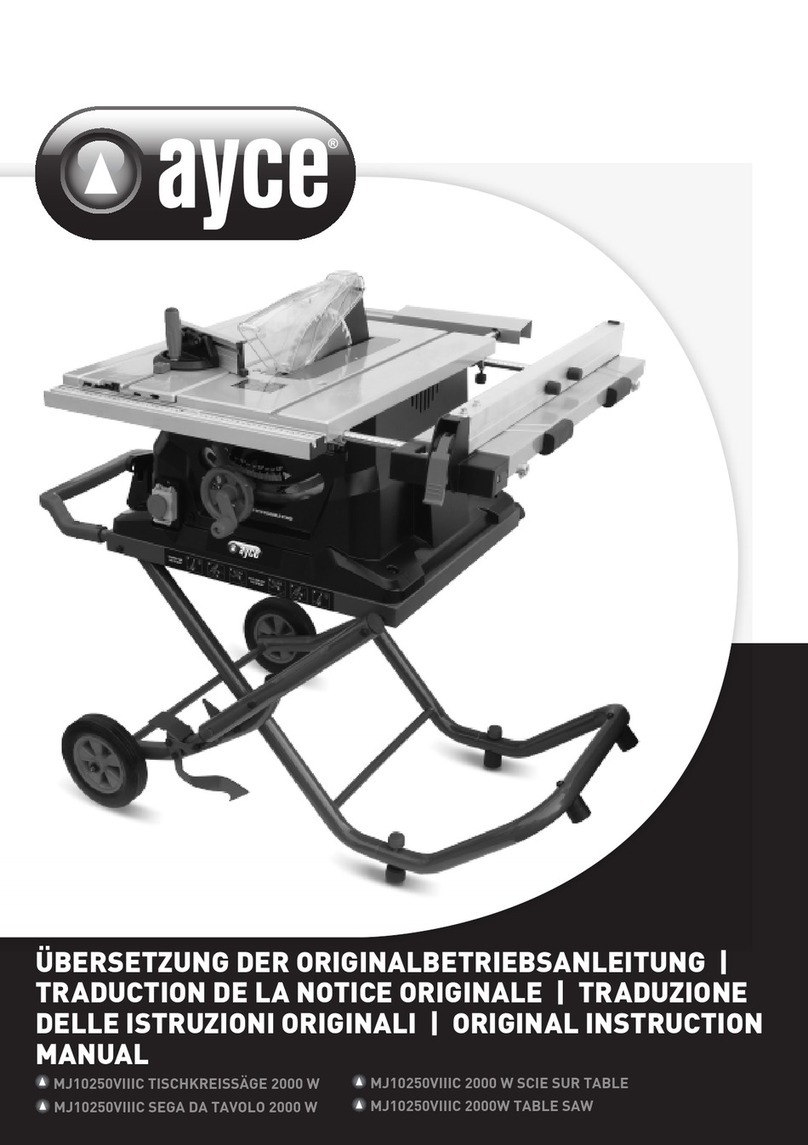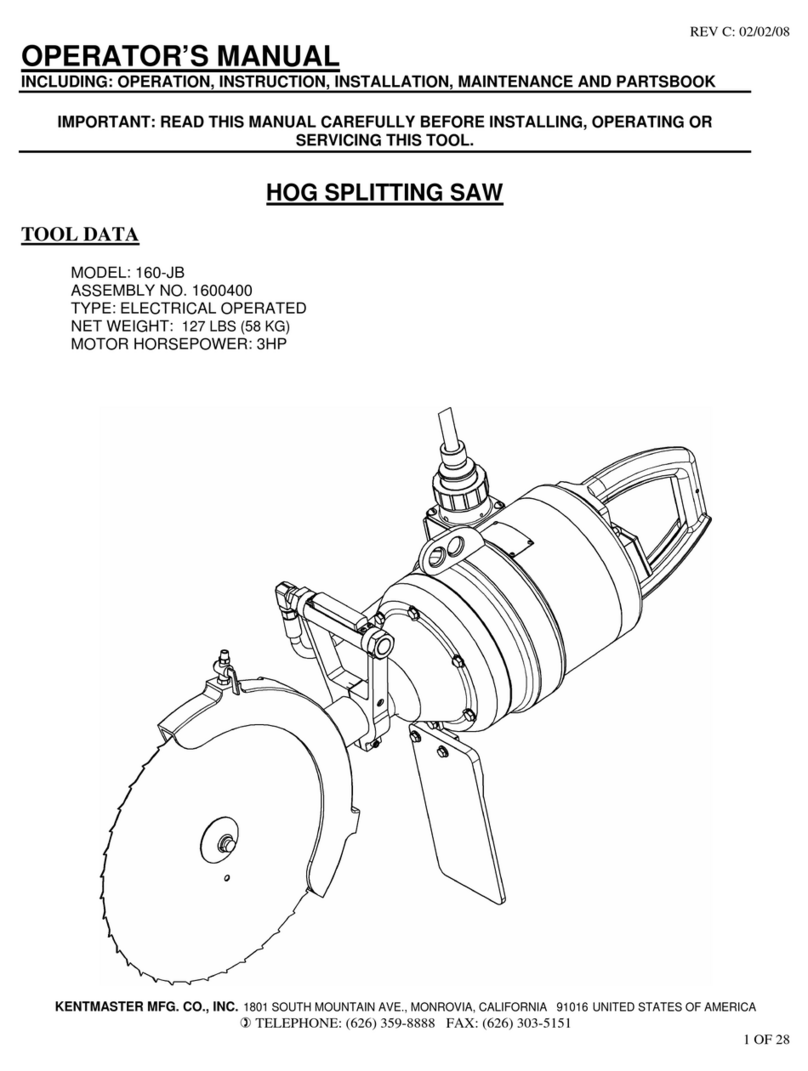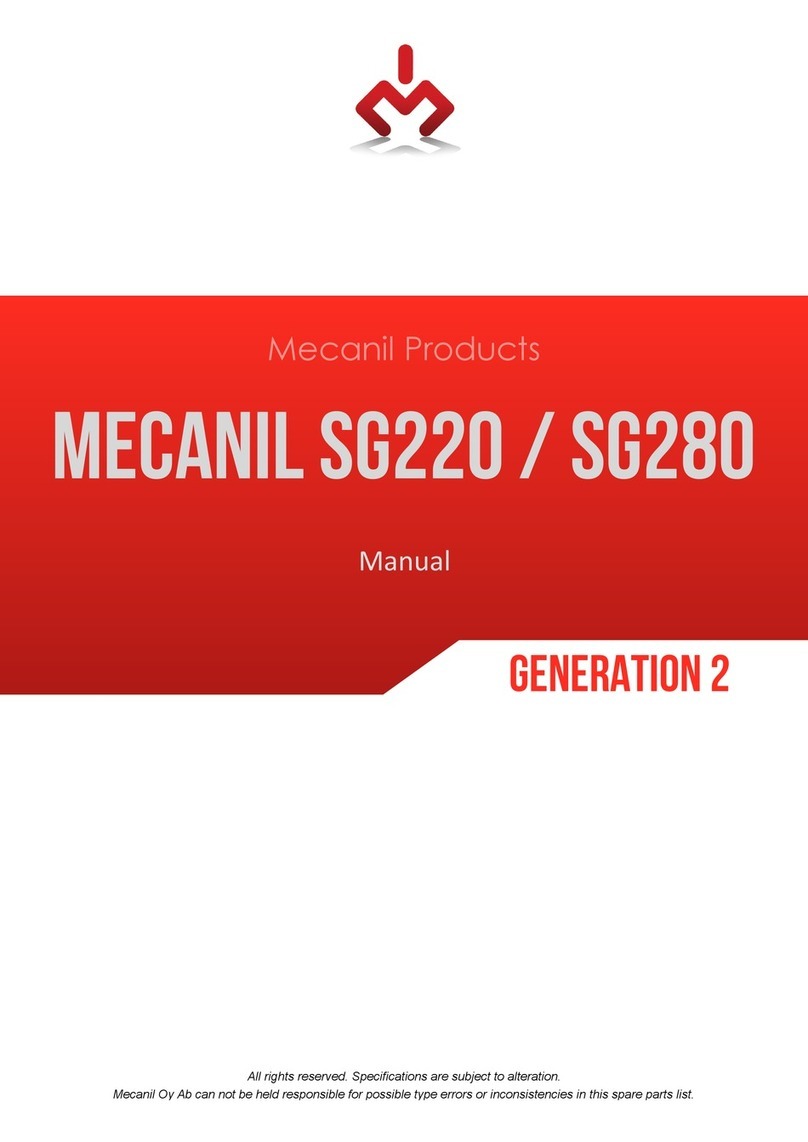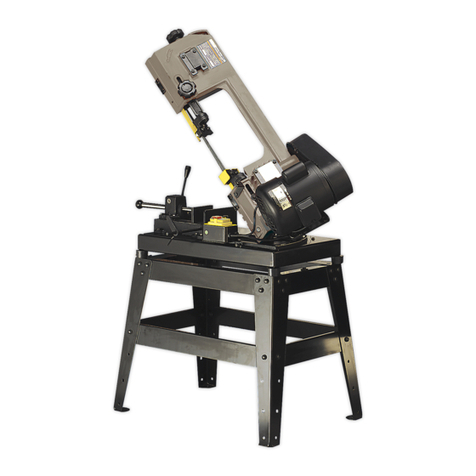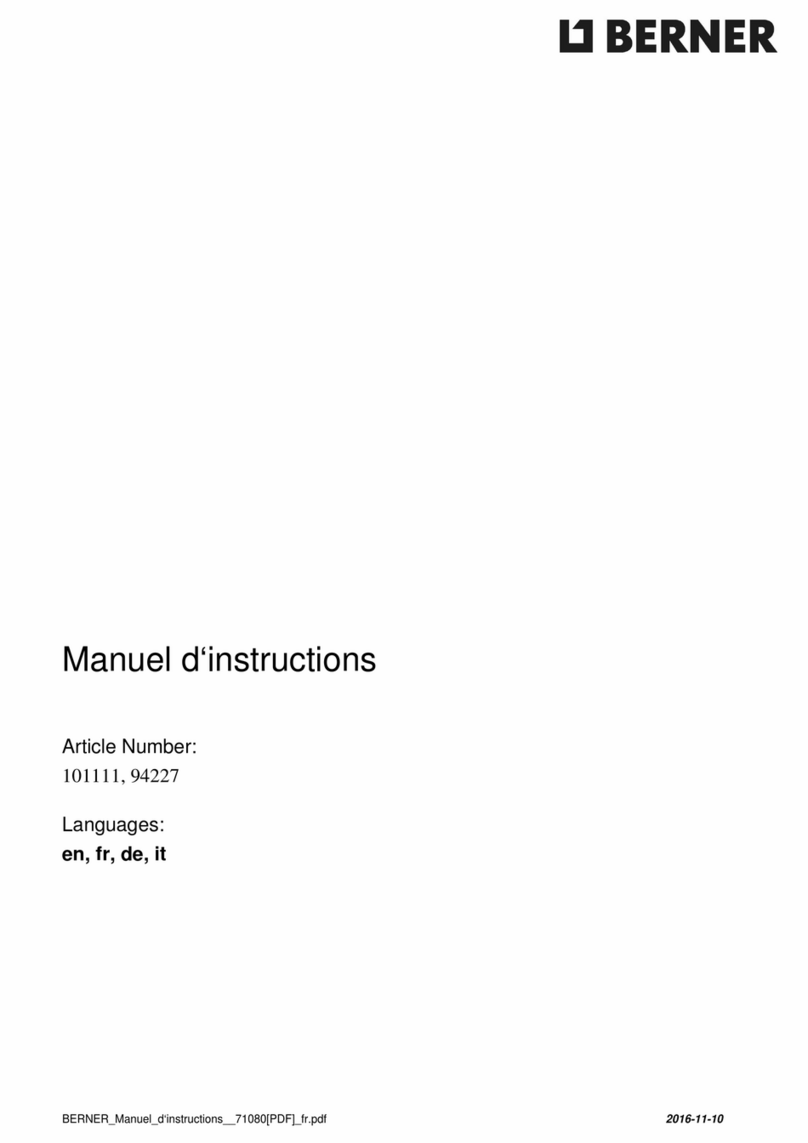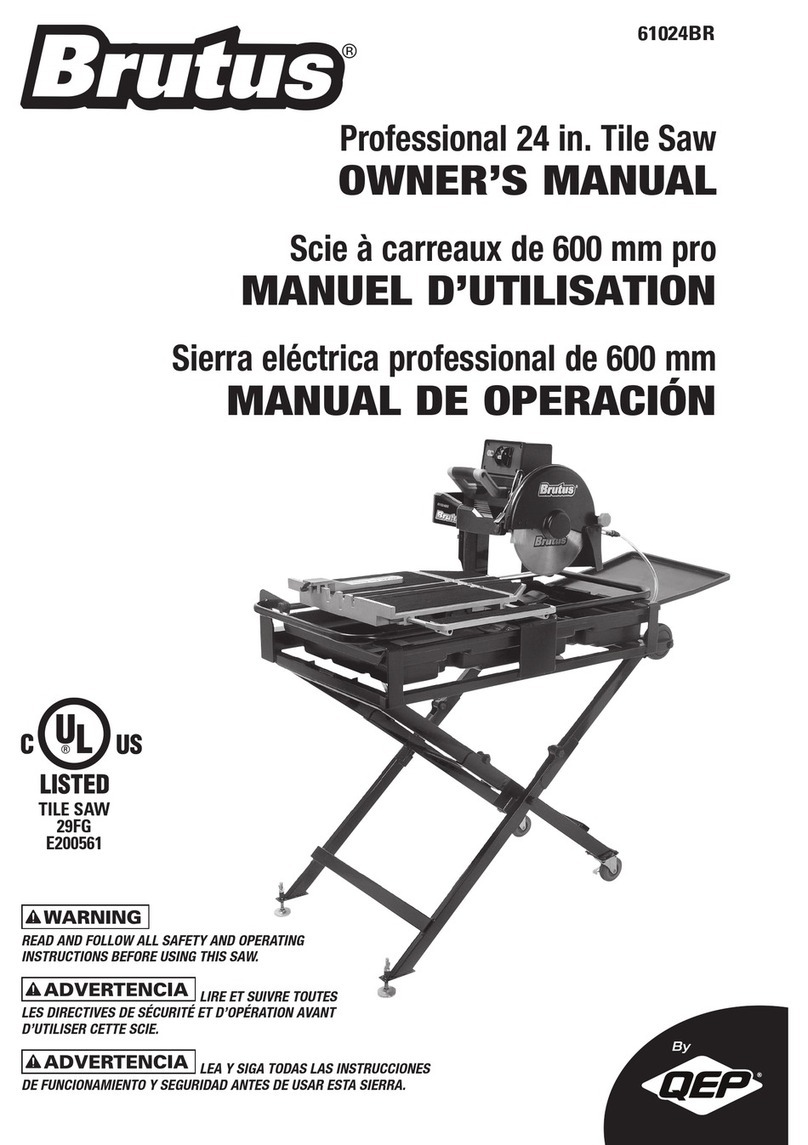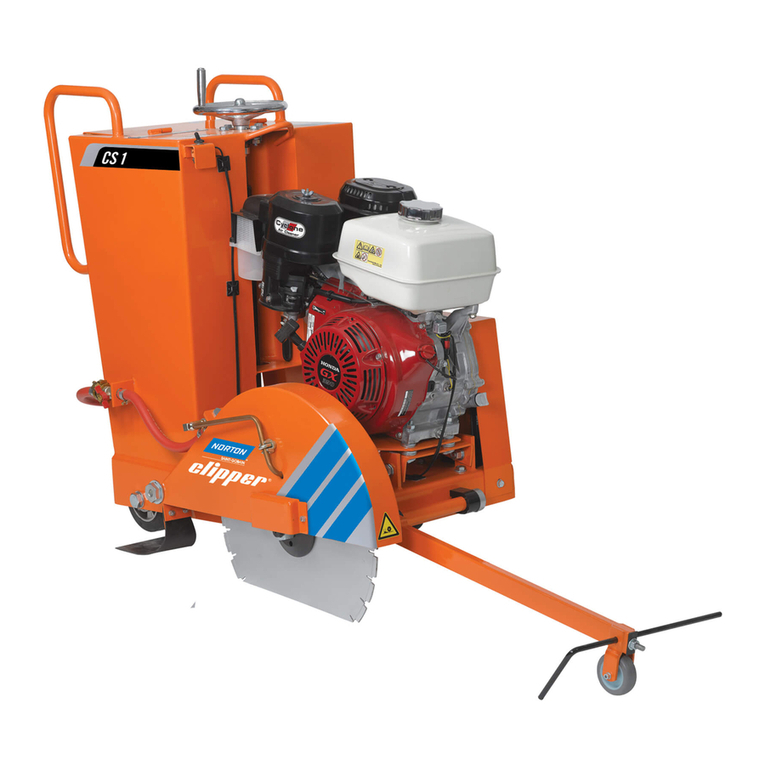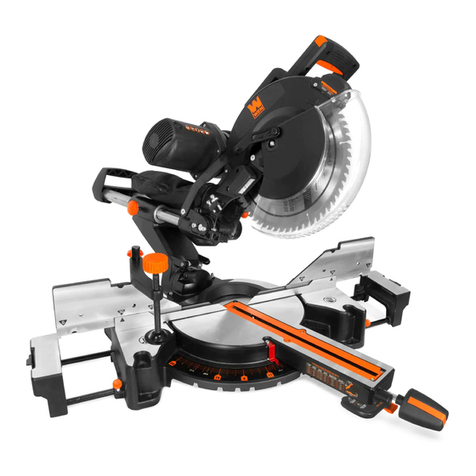siegen power S01005 User manual

Thank you for purchasing a Sealey Product. Manufactured to a high standard this product will, if used according to these
instructions and properly maintained, give you years of trouble free performance.
IMPORTANT: PLEASE READ THESE INSTRUCTIONS CAREFULLY. NOTE THE SAFE OPERATIONAL
REQUIREMENTS, WARNINGS AND CAUTIONS. USE THIS PRODUCT CORRECTLY AND WITH CARE FOR THE
PURPOSE FOR WHICH IT IS INTENDED. FAILURE TO DO SO MAY CAUSE DAMAGE AND/OR PERSONAL
INJURY AND WILL INVALIDATE THE WARRANTY. PLEASE KEEP INSTRUCTIONS SAFE FOR FUTURE USE.
1. SAFETY INSTRUCTIONS
WARNING! Ensure that Health & Safety, local authority and general workshop practice regulations are
adhered to when using this equipment.
Familiarise yourself with the applications, limitations and potential hazards peculiar to the air rotary
cut-off tool.
WARNING! Disconnect from the air supply before changing cutting disc or servicing.
Maintain tool in good condition and replace any damaged or worn parts. Use genuine parts only.
Unauthorised parts may be dangerous and will invalidate the warranty.
WARNING! Check correct air pressure is maintained and not exceeded. We recommended 90psi.
Keep air hose away from heat, oil and sharp edges. Check air hose for wear before each use and
ensure that all connections are secure.
WARNING! Before each use check cutting disc is secure, and the disc is not worn or damaged. If
damaged replace immediately.
Ensure replacement discs are not damaged in any way such as cracks, deformations or splinters etc.
Also check the mounting washer to ensure it is not deformed, burred or notched. Damaged washer must
not be used as it will cause irregular pressure on the disc which may cause the disc to break. DO NOT
over tighten a disc and never tamper with a disc in order to adapt it to a different size holder.
Always use the correct disc suitable for the material being cut. Ensure the maximum speed
specification of the cutting disc is higher than that indicated on the machine data plate.
WARNING! Keep disc guard in place, tight and in good working order. The safety guard is a
mandatory fitting where tool is used in premises covered by the Health & Safety at Work Act.
WARNING! Always wear approved eye and face protection when operating the tool.
Use breathing protection in accordance with COSHH regulations if fumes or dust pose a hazard.
Wear ear defenders and gloves if necessary.
Keep hands and body clear of the workpiece when operating the tool.
Maintain correct balance and footing. Ensure the floor is not slippery and wear non-slip shoes.
Secure unstable workpiece with a clamp, vice or other adequate holding device.
Keep children and non essential persons away from the working area.
Avoid subjecting disc to excessive strain, always ease disc down against workpiece (a harsh impact may
break the disc).
DO NOT over-press in order to cut workpiece. Maintain a controlled adequate progression, which will
emit a minimum of sparks.
DO NOT hold the workpiece by hand. Use clamps or a vice to secure the workpiece.
DO NOT use the tool for a task it is not designed to perform.
WARNING! DO NOT use tool if damaged or faulty. Contact your local service agent.
DO NOT use tool unless you have been instructed in its use by a qualified person.
DO NOT position your body in line with the disc whilst cutting, and DO NOT remove the safety guard
whilst in use.
DO NOT carry the tool by the air hose, or yank the hose from the air supply.
DO NOT direct air from the air hose at yourself or others.
WARNING! DO NOT cut any materials containing asbestos.
DO NOT switch the tool on whilst the disc is in contact with the workpiece.
DO NOT allow workpiece to over heat. Periodically cool by immersing the workpiece in water.
DO NOT use tool where there are flammable liquids, solids or gases such as paint solvents,
including waste wiping or cleaning rags etc as any sparks generated may be dangerous.
DO NOT touch the workpiece close to the cut as it will be very hot. Allow to cool. The workpiece may
also be very sharp.
DO NOT operate tool if you are tired or under the influence of alcohol, drugs or intoxicating medication.
When not in use disconnect from air supply and store in a safe, dry, childproof location.
Original Language Version
INSTRUCTION MANUAL
AIR ROTARY CUT-OFF TOOL 3”
MODEL NO
S01005
© Jack Sealey Limited 2013 S01005 Issue: 1 - 05/04/13

4.2. OPERATING
WARNING!Ensure you have read, understood and apply safety instructions.
4.2.1. Connect the tool to the air supply.
4.2.2. To start the tool, hold firmly and push the trigger locking lever forward (fig.3) whilst depressing trigger.
4.2.3. The disc must be running at its maximum speed before attempting to cut the workpiece.
4.2.4. Slowly and smoothly bring the cutting disc toward the workpiece (avoid jerky movements).
4.2.5. Exert adequate pressure on the tool to allow cutting according to the type and size of the
material you are working with. Avoid subjecting disc to excessive strain, always hold tool firmly and
ease disc against workpiece (a harsh impact may break the disc). Maintain a controlled adequate
progression. DO NOT allow tool to free run for an extended period of time as this will shorten its
bearing life.
4. OPERATING INSTRUCTIONS
fig 1
fig 2
4.1. FITTING CUTTING DISC
WARNING! Disconnect from the air supply before changing disc.
4.1.1. Use hex key to remove socket head cap screw and washer (fig.3).
4.1.2. Place the cutting disc onto the spindle.
4.1.3. Replace the washer and secure with socket head cap screw, but do not over tighten. Check that
replacement disc is not damaged, (cracks, deformations or splinters etc). Also check the mounting
washer to ensure it is not deformed, burred or notched. A damaged washer must not be used as it
may cause irregular pressure on the disc which may cause it to break.
DO NOT tamper with a disc in order to adapt it to a different size holder.
2. INTRODUCTION & SPECIFICATIONS
3.1. AIR SUPPLY (Recommended hook-up procedure is shown in fig.1.)
3.1.1. Ensure tool air valve (or trigger) is in "off" position before connecting to the air supply.
3.1.2. You will require an air pressure of 90psi, and an air flow according to specification.
3.1.3. WARNING! Ensure the air supply is clean and does not exceed 90 psi while operating the tool. Too
high an air pressure and unclean air will shorten the product life due to excessive wear, and may be
dangerous causing damage and/or personal injury.
3.1.4. Drain the air tank daily. Water in the air line will damage the tool.
3.1.5. Clean air inlet filter weekly.
3.1.6. Line pressure should be increased to compensate for unusually long air hoses (over 8 metres). The
minimum hose diameter should be 1/4” I.D. and fittings must have the same inside dimensions.
3.1.7. Keep hose away from heat, oil and sharp edges. Check hose for wear, and make certain that all
connections are secure.
3.2. COUPLINGS
Vibration may cause failure if a quick change coupling is connected directly to the tool. To overcome
this, connect a leader hose to the tool. A quick change coupling may then be used to connect the
leader hose to the air line recoil hose. See fig.1 & fig.2.
Disc size: .................Ø75x2x10mm
Free speed: ................. 20,000rpm
Air consumption:...................4cfm
Cutting wheel part no: ........... PTC/3C
(Pack of 5):....................PTC/3C5
Operating pressure: ................90psi
Air inlet size:................... 1/4”BSP
Weight: ......................... 0.8kg
Noise Power: ...................95dB.A
Noise Pressure: .................84dB.A
Suitable for cutting car panel material and exhaust brackets. Fitted with metal safety guard and throttle safety
device to prevent accidental operation. Cutting disc not included. Suitable for the DIY enthusiast and light
garage use.
3. PREPARING TOOL FOR USE
Original Language Version S01005 Issue: 1 - 05/04/13
© Jack Sealey Limited 2013

WARNING!Disconnect tool from air supply before changing accessories, servicing or performing
maintenance.Replace or repair damaged parts. Use genuine parts only. Unauthorised parts may be
dangerous and will invalidate the warranty.
5.1. Lubricate the air tool daily with a few drops of Sealey air tool oil dripped into the air inlet to prolong its
life.
5.2. Clean the tool after use.
5.3. Loss of power or erratic action may be due to the following:
a) Excessive drain on the air line. Moisture or restriction in the air pipe. Incorrect size or type of hose
connectors. To remedy check the air supply and follow instructions in section 3.
b) Grit or gum deposits in the tool may also reduce performance. If your model has an air strainer
(located in the area of the air inlet), remove the strainer and clean it. Flush the tool out with gum
solvent oil or an equal mixture of SAE No 10 oil and paraffin. Allow to dry before use.
5.4. For a full service contact your local Sealey service agent.
5.5. When not in use, disconnect from air supply, clean tool and store in a safe, dry, childproof location.
5. MAINTENANCE
NOTE: It is our policy to continually improve products and as such we reserve the right to alter data, specifications and component parts without prior notice.
IMPORTANT: No liability is accepted for incorrect use of this product.
WARRANTY: Guarantee is 6 months from purchase date, proof of which will be required for any claim.
INFORMATION: For a copy of our latest catalogue and promotions call us on 01284 757525 and leave your full name and address, including postcode.
01284 757500
01284 703534
sales@sealey.co.uk
Sole UK Distributor, Sealey Group,
Kempson Way, Suffolk Business Park,
Bury St. Edmunds, Suffolk,
IP32 7AR
www.sealey.co.uk
Web
email
Parts support is available for this product. To obtain a parts listing and/or diagram,
please log on to www.sealey.co.uk, email sales@sealey.co.uk or telephone 01284 757500.
Environmental Protection
Recycle unwanted materials instead of disposing of them as
waste. All tools, accessories and packaging should be sorted,
taken to a recycle centre and disposed of in a manner which
is compatible with the environment.
Original Language Version
© Jack Sealey Limited 2013 S01005 Issue: 1 - 05/04/13
fig 3 Trigger locking lever 4.2.2.

Original Language Version
© Jack Sealey Limited 2013 S01005 Issue: 1 - 05/04/13
WARNING! – Risk of Hand Arm Vibration Injury.
This tool may cause Hand Arm Vibration Syndrome if its use is not adequately managed.
This tool is subject to the vibration testing section of the Machinery Directive 2006/42/EC.
This tool is to be operated in accordance with these instructions.
This tool has been tested in accordance with: EN ISO 28927- 1: 2009 & BS EN ISO 15744:2008.
Declaration and verification of Vibration Emission figures are in accordance with EN 12096: 1997
Measured vibration emission value (a): 1.68 m/s²
Uncertainty value(k): 1.50 m/s²
Please note that the application of the tool to a sole specialist task may produce a different average vibration
emission. We recommend that a specific evaluation of the vibration emission is conducted prior to commencing
with a specialist task.
A health and safety assessment by the user (or employer) will need to be carried out to determine the suitable
duration of use for each tool.
NB: Stated Vibration Emission values are type-test values and are intended to be typical.
Whilst in use, the actual value will vary considerably from and depend on many factors.
Such factors include; the operator, the task and the inserted tool or consumable.
NB: ensure that the length of leader hoses is sufficient to allow unrestricted use, as this also helps to reduce
vibration.
The state of maintenance of the tool itself is also an important factor, a poorly maintained tool will also increase
the risk of Hand Arm Vibration Syndrome.
CORRECT USE.
Vibration emission is closely linked to the operating pressure in the air supply. The user should ensure that the
pressure is set in accordance with our recommendations to assure optimum efficiency and minimise vibration
exposure.
• Ensurethatthetooliscorrectlyalignedtothework.Misalignmentincreasestheriskofvibrationinjury.
• Ensurethatconsumablesareselected,maintainedandreplacedinaccordancewithSealeyInstructions.
• Sleevefittingsmustbeusedwherepossible.
• Alwayssupportthetoolinastandoronabalanceroratensiondevicewherepossible.
• Ensurethattheoperatorissufficientlyexperiencedinordertobeabletohandleandoperatethetoolcorrectly.
• Ensurethatthetoolisheldwithalightbutsecuregrip.Avoidexcessivegripforceasthiswillincreasetherisk
of vibration injury.
MAINTENANCE.
If the air system does not have an oiler, lubricate the air tool daily with a few drops of Sealey air tool oil dripped
into the air inlet. Clean the tool after use.
DO NOT use worn or damaged grinding discs.
Loss of power or erratic action may be due to the following:
Excessive drain on the air line. Moisture or restriction in the air pipe. Incorrect size or type of hose connectors.
To remedy, check the air supply and follow instructions in the PREPARING FOR USE section.
Grit, residual deposits (gum) in the tool may also reduce performance.
Remove the strainer. Clean the strainer and flush the tool out with gum solvent oil or an equal mixture of SAE
No: 10 oil and paraffin.
Allow the tool and strainer to dry then lubricate before use.
For a full service, contact your local Sealey service agent.
When not in use, disconnect the tool from the air supply, clean the tool and store the tool in a safe, childproof,
location.
Health surveillance.
We recommend a programme of health surveillance to detect early symptoms of vibration injury so that
management procedures can be modified accordingly.
Personal protective equipment.
We are not aware of any personal protective equipment (PPE) that provides protection against vibration injury
that may result from the uncontrolled use of this tool. We recommend a sufficient supply of clothing (including
gloves) to enable the operator to remain warm and dry and maintain good blood circulation in fingers etc. Please
note that the most effective protection is prevention, please refer to the Correct Use and Maintenance section in
these instructions. Guidance relating to the management of hand arm vibration can be found on the HSC
website www.hse.gov.uk - Hand-Arm Vibration at Work.
Table of contents
Other siegen power Saw manuals
Popular Saw manuals by other brands
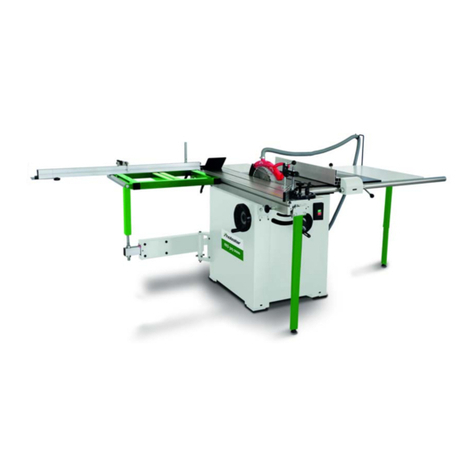
Holzstar
Holzstar FKS 315-2000 E Operation instructions
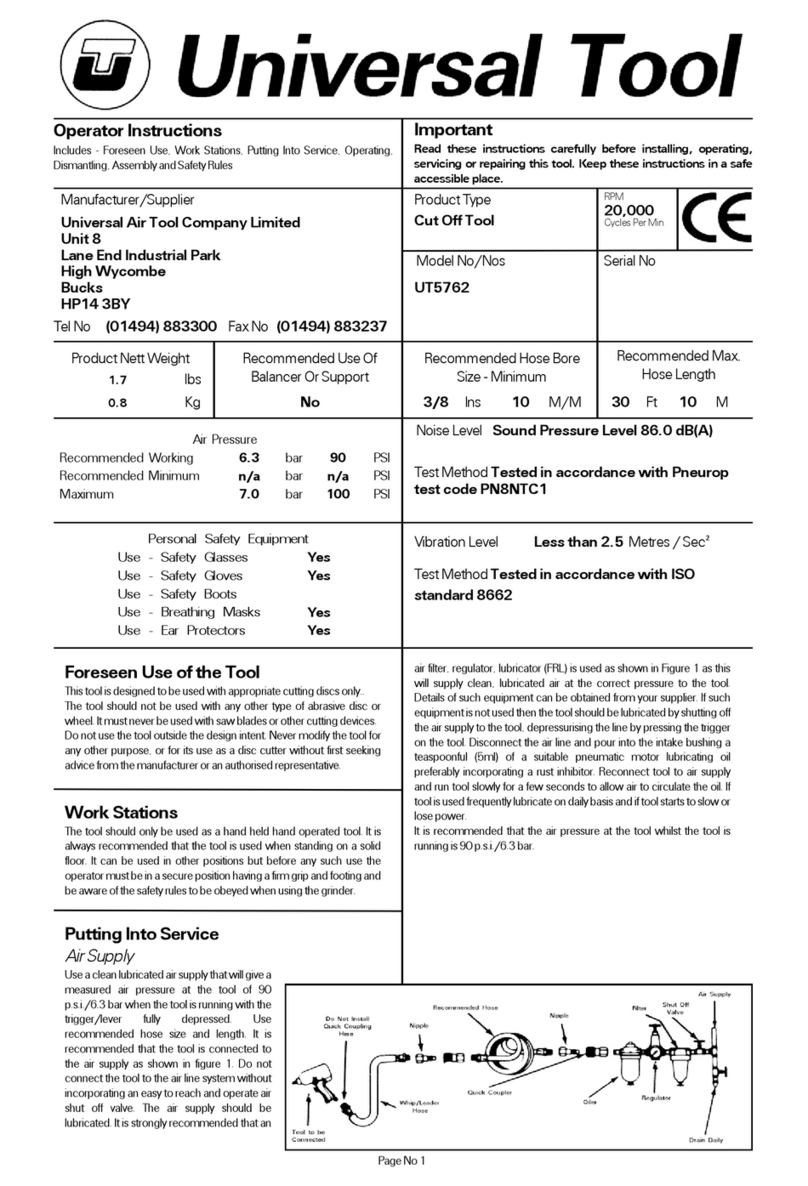
Universal Tool
Universal Tool UT5762 Operator instructions
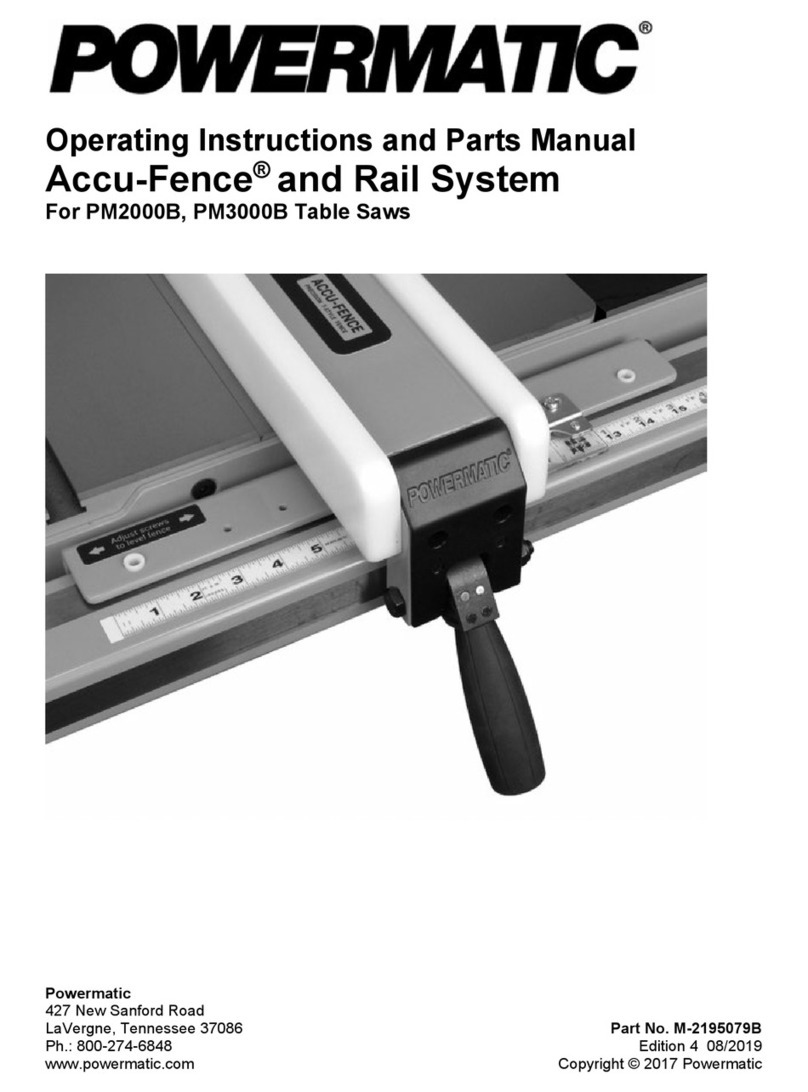
Powermatic
Powermatic Accu-Fence PM3000T Operating instructions and parts manual

MH MOTORHEAD
MH MOTORHEAD MH-03-RS-B1-0-1 instruction manual
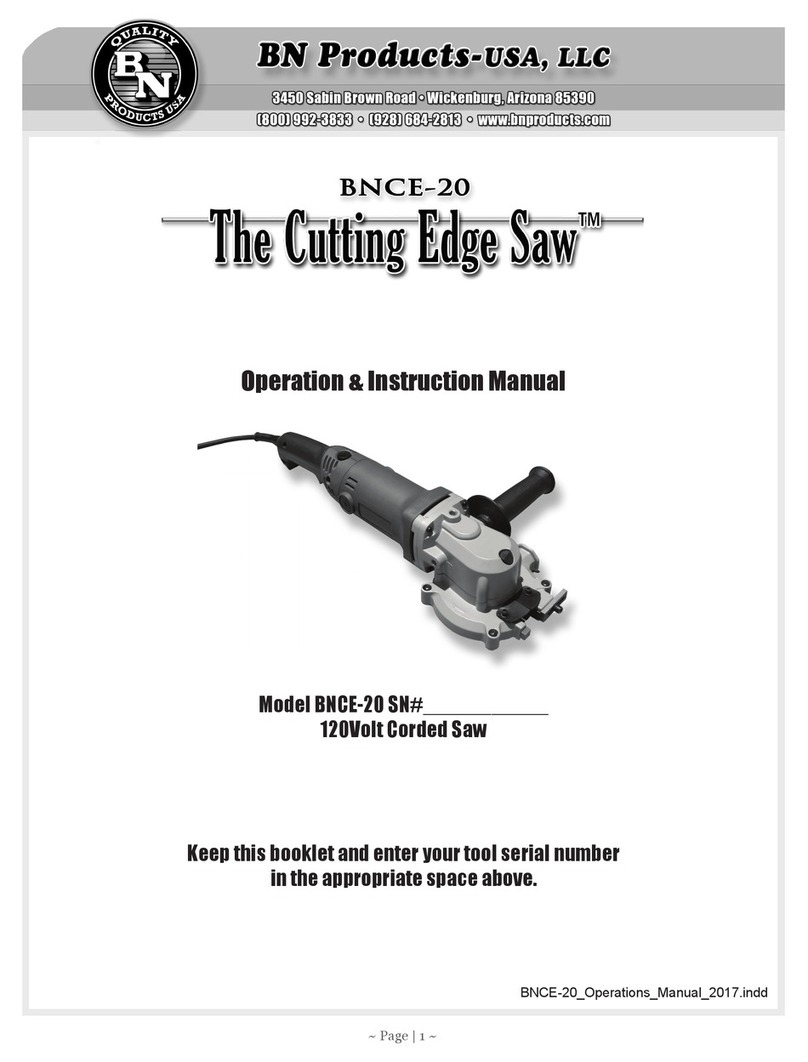
BN Products
BN Products BNCE-20 SN Operation & instruction manual

Makita
Makita M2401 instruction manual
